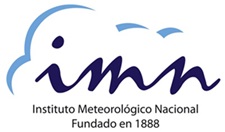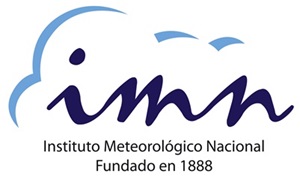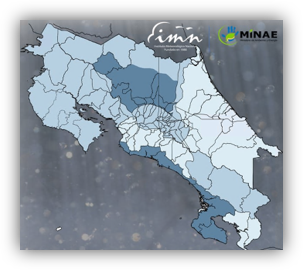Weather warnings
Jul
05
Aviso Meteorológico (Actualización)
Lluvias generalizadas en Costa Rica esta tarde y llegada de onda tropical #17 la noche del sábado
5 de julio de 2024
6.00 p.m.
Diagnóstico: Esta tarde las lluvias han sido generalizadas en todo el territorio nacional, debido a que la Zona de Convergencia Intertropical se ubica sobre el país. En las últimas horas, las...
Jul
05
Weather Warning
Decrease in the indirect influence of Hurricane Beryl and Tropical Wave #17
July 5, 2024
9.20 am
Diagnosis: Hurricane Beryl made landfall in Yucatan this Friday as a Category 2 hurricane. It will weaken as it continues to cross the Yucatan Peninsula and then enter the Gulf of Mexico. It...
Jul
04
Weather Warning (Update)
Intertropical Convergence Zone active over Costa Rica due to a lower indirect influence of Hurricane Beryl
July 4, 2024
05:30 p.m.
Diagnosis: Hurricane Beryl continues its path through the northwest of the Caribbean Sea, approaching the east of the Yucatan Peninsula in Mexico, with maximum sustained winds of 175 km/h, being...
Jul
04
Aviso Meteorológico
Zona de Convergencia Intertropical sobre Costa Rica y disminución de la influencia indirecta de Huracán Beryl
4 de julio de 2024
10.00 a.m.
Diagnosis: Hurricane Beryl continues its passage through the Caribbean Sea and this morning is west of Grand Cayman Island, heading towards the Yucatan Peninsula in Mexico, with maximum sustained...
Jul
03
Weather Warning (Update)
Intertropical Convergence Zone active due to indirect influence of Hurricane Beryl
July 3, 2024
05.00 p.m.
Discussion: The positioning and reactivation of the Intertropical Convergence Zone over Costa Rica is due to the indirect influence exerted by Hurricane Beryl as it moves northwest of the...
Weather warnings history
In this section you will find the weather warnings history.
Aviso Meteorológico-IMN-040120-1030am
Jan
04
Weather Warning
Cold surge # 14 will enter the Caribbean Sea this Saturday
January 04, 2020
10.30 a.m.
Discussion: Cold surge # 14 is currently in the Gulf of Mexico, it will continue moving towards the central sector of the Caribbean Sea during the course of this Saturday. Associated with its passage, atmospheric pressure levels are gradually increasing and at the same time they are causing acceleration in trade winds in southern Central America, reaching maximums in the north of Guanacaste of 67 km/h and in the Central Valley 50 km/h.
Forecast: It is expected that this cold surge is reaching the north of Costa Rica between the night of this Saturday and the early morning of Sunday. Given this, the windy pattern will intensify gradually, maximum gusts between 80-100 km/h in Central Valley and North Pacific are expected, the most intense speeds in the mountain ranges north of the country. Windy conditions will also be perceived in the mountains of the Central and South Pacific.
With respect to rainfall, rainfall of variable intensity is expected during the night of this day and early morning and Sunday morning in the Caribbean and the North Zone, accumulated between 30-60 mm and possible higher amounts in a localized way. In addition, light rains and drizzles are possible in the north and east of the Central Valley and the north of Guanacaste, accumulated less than 5 mm.
It is estimated that these weather conditions associated with the cold thrust would be maintained at least on Monday, reducing their impact on Tuesday.
Due to the above, the IMN recommends:
- Extreme precautions due to strong winds and their possible impact on roofs, electrical wiring, signs, trees; as well as in the mountainous parts of the country (national parks, volcanoes).
- Caution in areas vulnerable to flooding due to sewer saturation, increased flow in rivers and streams, and in areas prone to landslides.
- Caution for boats by choppy sea and very strong waves in the North Pacific, Gulf of Nicoya, Central Pacific and the Caribbean Sea, as well as air navigation due to turbulence over the mountainous sectors.
- Avoid burning of all kinds as they can get out of control.
- Stay informed through social networks, Twitter: @IMNCR, Facebook: National Meteorological Institute and the Website: www.imn.ac.cr
Rebeca Morera R
Meteorologist
DMSA-IMN
 RSS IMN latest alerts(Local Notification): https://www.imn.ac.cr/en/web/imn/avisos-meteorologicos/-/asset_publisher/lTlyP4wEZlDa/rss
RSS IMN latest alerts(Local Notification): https://www.imn.ac.cr/en/web/imn/avisos-meteorologicos/-/asset_publisher/lTlyP4wEZlDa/rss 


